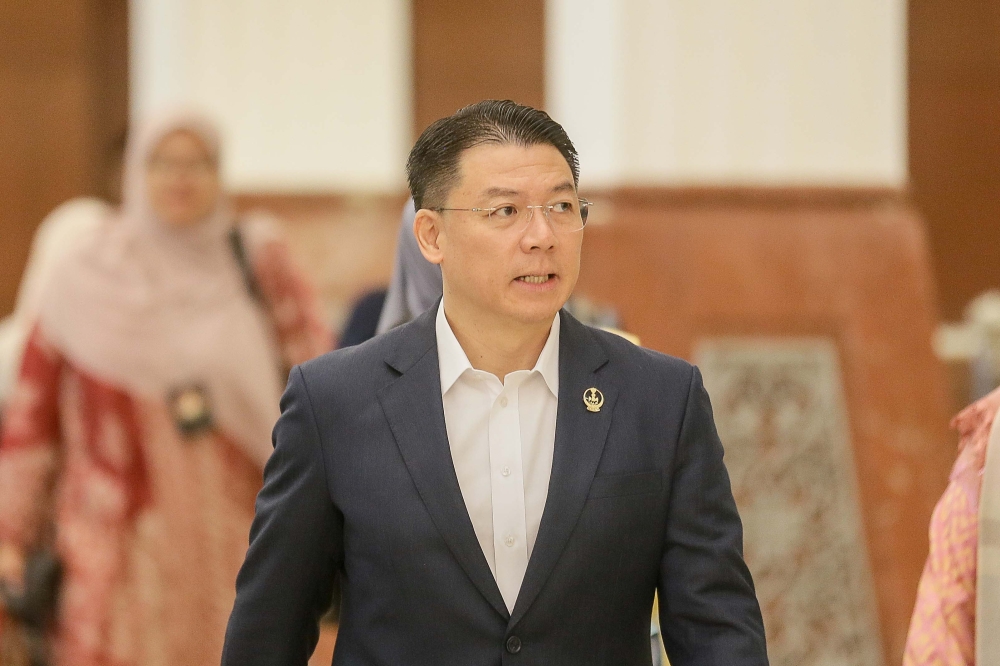FEBRUARY 22 — I refer to Syerleena Abdul Rashid’s “Who wins in urban renewal?”.
The MP for Bukit Bendera has called for a “productive discussion” on the benefits of the proposed law on urban renewal and redevelopment – to be known as Urban Renewal Act when passed by Parliament – instead of “misinformation and fearmongering” which “have clouded the true intentions” of the Madani government’s initiative.
According to Syerleena, the proposed law is not about “house-grabbing” – it is an opportunity to protect communities while ensuring they thrive in a modern, safe, and sustainable environment.
It is not about “displacing residents” – it is about ensuring that they no longer have to live in substandard conditions.Through the proposed law, ageing apartments can be transformed into modern, well-equipped housing with improved infrastructure, without compromising the rights of the original residents.
It is not also about “forced seizure of homes”. The government has made it clear that ownership will remain protected and that redevelopment will be carried out through consultation and consensus with the affected communities.
Last but not least, it is not about politics. It is about people. It is about ensuring that the next generation does not inherit slums, that cities remain vibrant and liveable, and that economic opportunities flourish in tandem with urban development.
The proposed law will create jobs in the construction and real estate sectors and boost local economies.
We can agree with Syerleena that the proposed law “is one of the most significant legislative efforts to modernise our cities and uplift communities in Malaysia”.
There is currently no law to govern urban renewal and redevelopment. The first of its kind in the country should then be a “blueprint for rejuvenating urban areas”.
Notice that I have used the words “proposed law” because that’s what it is. There is not even an Urban Renewal Bill, let alone Urban Renewal Act.
A Bill is a proposed law. In a statement on Wednesday (Feb 19) the Housing and Local Government said it has developed a draft of the Urban Renewal Bill through the Department of Town and Country Planning (PLANMalaysia).
“This Bill is under review for approval by the Attorney General’s Department. Once it receives the green light, it will be presented at the Cabinet meeting scheduled for March, followed by the National Council for Local Government Meeting in May.
“The Bill is expected to be tabled in Parliament in July this year,” the statement said, adding that the proposed legislation emphasises key principles to ensure no party is disadvantaged during the urban renewal.
It has been almost a year since the minister, Nga Kor Ming said that his ministry was in the final stages of drafting Malaysia’s first legislation on urban renewal and redevelopment to be known as the Urban Redevelopment Act (URA).

Nga Kor Ming said an Urban Renewal Bill would be tabled during the first parliamentary meeting in 2025. — Picture by Sayuti Zainudin
In an exclusive interview in March last year with Bernama and The Edge at the Asia Real Estate Leader’s (AREL) Study Tour Hong Kong and Shenzhen, China Edition, Nga said that the ministry had conducted many town hall sessions with various stakeholders, including Kuala Lumpur City Hall (DBKL) and state governments.
“Through the Town and Country Planning Department (PLANMalaysia), we have completed the master guidelines for the urban redevelopment for the country and it was approved by Cabinet in 2023.
“The Ministry is working closely with various agencies, especially the drafting division of the Attorney General’s Chamber, to draft the law,” he added.
Back home and five months later, during the presentation of a half-year report on the ministry, Nga said an Urban Renewal Bill would be tabled during the first parliamentary meeting in 2025.
“It will allow rebuilding of aged buildings without 100 per cent consent of all the owners,” he said.
Nga explained that in cities such as Tokyo and Shanghai, only 60 per cent ownership consent was needed for rebuilding.
In Singapore, meanwhile, the consent rate is 90 per cent for buildings over 10 years old, and 80 per cent for those 30 years and above.
The tabling of the proposed law will be a primary focus of the ministry this year.
Apparently, the ministry has kickstarted it with a special briefing session at the Parliament Building on Tuesday (February 18).
Concerns are now being voiced by MPs as alluded to by Syerleena.
As I note before, a Bill is a proposed law. A Bill can be published in draft for consultation before its formal introduction in Parliament. The Bill may then go through a process of pre-legislative scrutiny where it can be considered by a Parliamentary committee or committees.
The committee may take evidence and make recommendations to the government on the Bill. These recommendations, together with the consultation responses from members of the public and MPs, may mean that elements of the Bill are modified before introduction.
Publication of a draft Bill allows for pre-legislative scrutiny for a better law.
* This is the personal opinion of the writer or publication and does not necessarily represent the views of Malay Mail.







